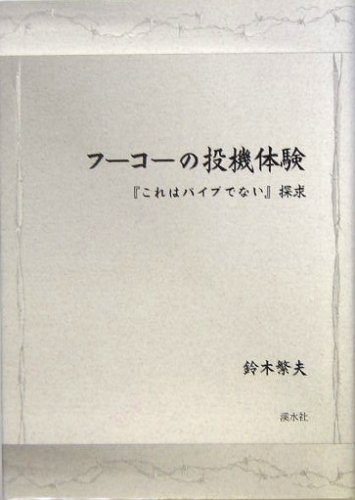2 0 0 0 IR ポストモダン状況下におけるグローバル人材育成者の教育観 : 幻想の希望から不可視の希望へ
- 著者
- 鈴木 繁夫 Suzuki Shigeo
- 出版者
- 名古屋大学人文学研究科
- 雑誌
- 名古屋大学人文学研究論集 (ISSN:2433233X)
- 巻号頁・発行日
- no.2, pp.65-88, 2019-03-31
A positive attitude toward life, particularly learned optimism, has been explained in the field of positive psychology as a major key to developing a fruitful life of our own. Hope theory, a branch of the psychology, affirms that we should hold a positive outlook even under negative circumstances, but warns against embracing excessively biased illusions insofar as they may undermine practical and resourceful ways of attaining goals. The theory encourages critical thinking, viewed as indispensable for assessing circumstances and events we encounter. Many college educators who are motivated to produce globally competent students seem to be possessed with heavily biased illusions about negative side-effects of global capitalism, entranced by the idea that their ultimate mission is to furnish students with major skills required to survive in the globalized world. Another group of highly optimistic educators, disenchanted with addiction to economic growth, privilege the importance of quality of life in motivating students to reconstitute their identity as a unique individual amid the uniformity brought by globalization. Recent research, however, shows that Japanese students' mindsets and behaviors have become more dehumanized or "animalized" in the sense that they are unable to look beyond the present moment and immediate circumstances. Symbolic or virtual reality has superseded what used to be considered real or hard facts, replacing students' perceptions and sense of reality with those more akin to animals. In this postmodern condition, educators at least ought to choose a group of students who awaken from a weakness of the will immersed in pleasant illusions and help them awaken to the hope of "being integrated into the universal order" (Gabriel Marcel). Educationalists need to instill a belief within students that their morals and behavior are guided by their natural connections with "the order."
2 0 0 0 OA 性格不一致の離婚とその起源 : ミルトン離婚論と現代離婚観の宗教性
- 著者
- 鈴木 繁夫 SUZUKI SHIGEO
- 出版者
- 名古屋大学大学院国際言語文化研究科
- 雑誌
- 言語文化論集 (ISSN:03886824)
- 巻号頁・発行日
- vol.35, no.1, pp.65-79, 2013-10-28 (Released:2013-11-14)
1 0 0 0 フーコーの投機体験 : 『これはパイプでない』探求
- 著者
- 青木 信之 鈴木 繁夫 渡辺 智恵 池上 真人 松原 緑 榎田 一路 寺嶋 健史 汪 曙東 高橋 英也 阪上 辰也 江村 健介
- 出版者
- 広島市立大学
- 雑誌
- 基盤研究(B)
- 巻号頁・発行日
- 2017-04-01
2018年度(平成30年度)については、本科研の最大課題について大きな知見が得られた年度となった。まず学生に実施したアンケート結果については、多くの大学生は長期休暇期間後の英語力低下は感じている、学習不足も感じている、しかし休暇期間中の学習機会の大学による提供については積極的ではなく、学習を管理されることについてはほとんど望まないということであった。一方、少人数ではあったが、長期休暇期間中に英語e-ラーニングを実施した大学では、学習量は学期中よりかなり少なかったものの、それでも受講しなかった学生達に比べて、英語力が向上あるいは維持されるという結果が示された。本研究で取り組もうとしてきたのは、英語力を向上させるには(特にある程度の基礎力をもった大学生の場合は)、集中的に大量の学習をさせることが必要であり、そしてそれをe-ラーニングによって実施することが可能であるということであった。本科研では、それに加えて、教養教育期間中にしっかりと英語力を上げ、そしてそれを維持させるには、長期休暇期間中の学習不足を克服する必要があり、それこそe-ラーニングの出番であることを証明するということで主目的であった。つまり、本科研の最大のポイントは、長期休暇中の英語力低下を防ぐという点であり、そういった意味では大きな前進があったと考えている。
1 0 0 0 世界シンボル辞典
- 著者
- J・C・クーパー著 岩崎宗治 鈴木繁夫訳
- 出版者
- 三省堂
- 巻号頁・発行日
- 1992
1 0 0 0 IR 造物主願望と不可視の導線 : フィレンツェ人老コジモの建築・写本・政治熱 (都市と文化)
- 著者
- 鈴木 繁夫 Suzuki Shigeo
- 出版者
- 名古屋大学大学院国際言語文化研究科
- 雑誌
- 言語文化研究叢書 (ISSN:13471600)
- 巻号頁・発行日
- vol.3, pp.65-126, 2004-03-31

